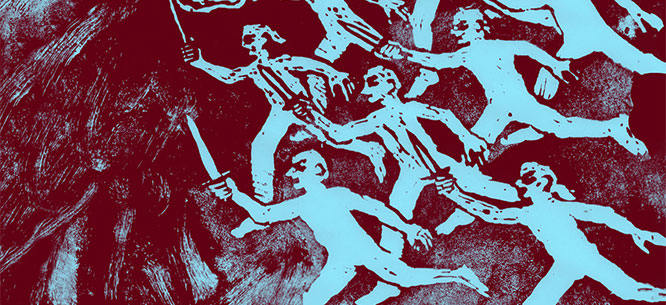After the Populist Moment
After the Populist Moment
By looking at right-wing politics around the world, we can better understand conservatives’ abiding preoccupations and priorities, and how they might be thwarted.
Introducing our Spring 2024 issue, “The Global Right.”

While we are paying a lot of attention to U.S. conservatives this election year, it is also an auspicious time to publish a special section on the global right. Just under a decade ago, we passed through a “populist moment,” so-called because of Brexit, Trump’s election, and the rise of Marine Le Pen as a serious contender for the French presidency, all in rapid succession. It seemed like the beginning of a new era of politics, one emerging from the dashed hopes and profound failings of the neoliberal order—and in many ways it has been. The terrain on which political struggle now takes place has been deeply altered by the right, with less educated voters, many of them from the working class, leaving their ancestral political parties and supporting the forces of reaction over issues like immigration, national identity, and “law and order.” But in electoral terms, the right’s record has been hit or miss, and it’s worth learning from their failures as well as their successes.
If right-wing movements and politicians promote nationalism and deploy the rhetoric of blood and soil—their blood and their soil—they also exist within robust international networks, learn tactics and strategy from their ideological brethren abroad, and offer their own vision of world order. By looking at the varying expressions of right-wing politics across the globe, we can better understand their abiding preoccupations and priorities, and how they might be thwarted.
In recent years, we have seen the far right take over political parties and win power. What have they tried to do with it? What happens when campaign promises to effect radical change make contact with reality—which is to say, actual governing? How much can even a deft leader accomplish in a constitutional system that requires give and take, and while dealing with other institutional actors and elites?
In some cases, such as Hungary, India, and Israel, right-wing parties have held power through multiple election cycles. How have they entrenched their rule and tried to legitimize their revanchist projects? And how have these models influenced right-wing actors in other countries? We’ve also witnessed the right respond in various ways to losing elections, including violent attempts to stay in office. What determines when they fight, and when they go?
The pieces in this section can’t definitively answer all these questions. But we hope they start to give us a better picture of what we’re up against.
Sam Adler-Bell is a freelance writer in New York. He co-hosts the podcast Know Your Enemy.
Matthew Sitman is a writer living in New York City. He is the co-host of Know Your Enemy and a member of Dissent’s editorial board.






